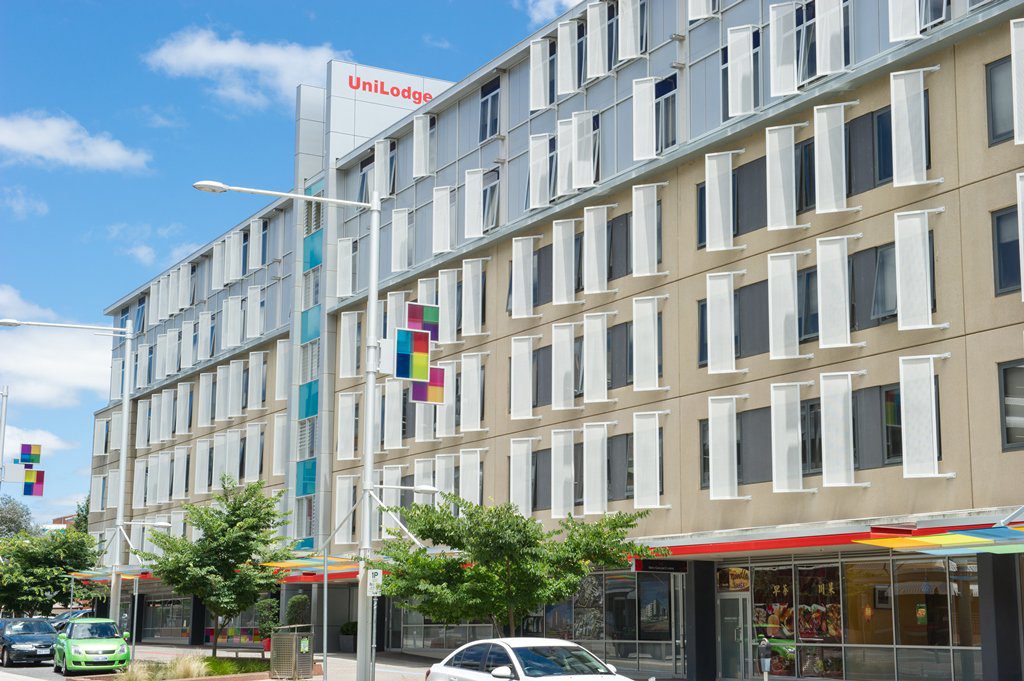While much of the media coverage throughout the lockdown focuses on case numbers, the impacts of the lockdown have been felt beyond just the realm of physical health. ANU students have faced financial hardship throughout this second lockdown, both in the ACT and interstate. This is in part due to reduced work hours, but also due to strict lockdown rules for on-campus students, many students have struggled to make rental payments.
Woroni sent out a survey to students in September to get a clearer picture of just how students have been impacted by the second lockdown. Thirty-seven students filled out the survey. Around half of the responses came from students living on campus (48.6%), mostly from those living in a self-catered hall (18.9%) or at UniLodge (27%), the other half living off campus (51.4%).
Of the respondents, 48.6% of students had struggled to make rental payments at some point since the lockdown began on August 13. Almost half (48.6%) of students had their working hours cut entirely due to lockdown. A further 22.9% lost some hours. Only 28.6% of students are able to work from home.
In the early weeks of the lockdown, students living on campus were subject to harsher lockdown requirements than other ACT residents. This included a narrower definition of what constituted “essential work” than in the wider community and strict rules about accessing kitchen and bathroom facilities. As a result, over half (56.5%) of students living on campus were prevented from attending work. An on-campus resident noted that they were “disappointed with the management of the situation, it was particularly difficult in a self-catered hall.”
A UniLodge resident outlined the impact of these restrictions, explaining that “Unilodge went far beyond the ACT regulations, pretty much picking [and] choosing what they labelled as essential work. This pretty much stopped nearly everyone I know from going to work, despite the fact they continued to charge rental payments.” One resident, while understanding the necessity of rules, felt their mental health impacted by the lack of a bubble system in the early weeks of lockdown, explaining that “it just really takes a toll.”
Financial support mechanisms from the government for those impacted by lockdowns have differed from last year. Rather than reinstituting JobKeeper payments, the government introduced Disaster Support Payments, which vary in amount depending on whether a worker receives other Centrelink payments or not. Among those surveyed, 75% of students eligible for disaster payments have applied.
Consequently, access to payments has not been equal. One student expressed that this lockdown is “somehow more unforgiving than the first;” the federal government “has yet again again chosen austerity and fear over providing relief and security to those who are vulnerable.” Another student shared that, despite living independently from their parents, they were “not eligible for payments cause [they are] a dependent and [their] parents make too much money,” which has meant that “it’s been difficult at times.”
However, now that the ACT has surpassed 70% of people 16 and over fully vaccinated, workers will need to reapply. Further, in the first week after the ACT surpasses 80% of people 16 and over fully vaccinated, these payments will be reduced, and then again the following week, only to be entirely cut the week after.
For students stuck interstate, the lockdown has been distressing. Students who want to return to the ACT must apply for an exemption, proving their residency; exemptions are often not granted for students living on-campus. One student expressed distress in not being able to return to the ACT, noting that the “lack of compassion is disheartening.”
Additionally, there has been little leniency on rental payments for students currently interstate. A student, who went home to visit family in NSW, leaving their belongings in Canberra, elaborated that it is “so stupid that we have to continue paying rent in lockdown.” They continue to “have to pay $300 a week (no parental assistance)” and UniLodge is refusing to “freeze the payments or offer any discounts.” Another Sydney-based student complained that “it sucks we can’t terminate our contracts especially considering we probably won’t be back all year.”
In response to these student concerns, a spokesperson for the University stated that it has “provided emergency funding for students in need” that can “also be applied to rent”. The spokesperson further said that the “ANU is currently exploring additional ways that [it] can assist residents impacted by the ongoing lockdown”, and that any resident who “need[s] additional rent relief [is] able to discuss this with their accommodation provider and the University encourages them to do so.”
Off-campus students have had more luck in cancelling their rental contracts. A student stuck in Sydney was unable to return to Canberra “due to living in close proximity with social housing” before the ACT even went into lockdown. Fortunately, the student could cancel their lease with the help of friends packing up their belongings which has “saved [them] a ton of money” but will have to look for new accommodation upon return to the ACT.
Students also voiced concerns about future housing stability. A student articulated that they were “very concerned about [the] end of lease that is approaching, and how lockdown/ongoing restrictions are going to impact this, as the ACT rental market is already notoriously difficult and expensive.”
Though the lockdown may be ending on Friday, the financial challenges experienced by students are far from over. Especially given that support payments will soon be cut, students are likely to face further money woes. Following the end of lockdowns last year, casual student workers continued to encounter reduced work hours.
We acknowledge the Ngunnawal and Ngambri people, who are the Traditional Custodians of the land on which Woroni, Woroni Radio and Woroni TV are created, edited, published, printed and distributed. We pay our respects to Elders past and present. We acknowledge that the name Woroni was taken from the Wadi Wadi Nation without permission, and we are striving to do better for future reconciliation.
